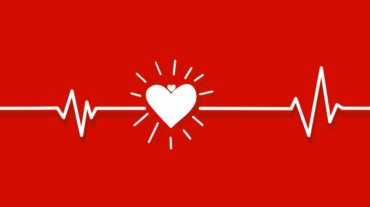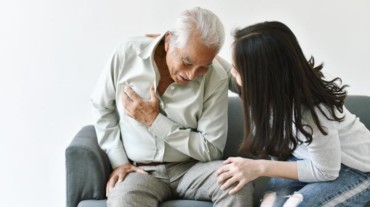
Heart disease is the number one killer in India. Reports and figures indicate that Indian people succumb to heart attacks about 10 years earlier in comparison to other ethnicities due to factors ranging from bad lifestyle to our genes.
Heart attack or cardiac arrest is a serious affair—it does not happen all of a sudden, as is the common belief in today’s time. In fact our body’s mechanism keeps telling us through various ways that our heart is ailing and needs attention. Thus one must listen carefully to what our body is communicating.
What worsens this situation is that the patient is brought to the hospital only after hours have passed, making it difficult to bring them back to normal health. They end up missing the golden hour treatment–that is the first one hour after a heart attack, which is ideal in providing timely lifesaving treatment, reducing complications and associated mortality.
Here’s why the first hour after a heart attack is the most crucial
Post a heart attack, heart muscles begin to die after one hour to 90 minutes, as they stop getting blood. And after six hours, various parts of the heart could be severely, irreversibly damaged and mostly patients don’t get another chance.

People fail to identify heart attack symptoms on time or seek appropriate medical help. The golden hour is very crucial for giving heart attack patients for timely lifesaving care. It is imperative that any chest pain above the waist level is subjected to ECG and consultation by a physician without further delay.
Immediate treatment and timely care in case of a heart attack is of utmost importance
Often people ignore chest pain attributing it to indigestion or acidity problems. Any acute chest pain must be immediately checked by a physician especially in people who have family history and are genetically prone to heart problems.
Reaching a hospital, which has an in-house cath lab, within the Golden Hour period provides emergency physicians’ ample time to perform appropriate tests and scans on the patient to ascertain the occurrence of heart attack and take necessary steps to reinstate proper blood flow to the heart.
Also, listen:
The intensity of pain should not be the deciding factor. Some heart attacks may be entirely painless and may manifest as sudden burning sensation in chest, breathlessness, dizziness, uneasiness, exhaustion, vomiting or sweating. If a person experiences any unexplained symptoms which could be due to heart attack, rush them to a hospital. The damage to heart muscle can be minimized with timely treatment.
Minor heart attack which is ignored eventually leads to major heart attack that could be the cause of a sudden death. In certain cases chest pain is combined with breathing difficulty. Here in case of heart patients time is precious than money. The sooner you take action, the faster you will recover.
Select Topics of your interest and let us customize your feed.
PERSONALISE NOWThese tips can help prevent a heart attack
Pain at unusual sites, unexplained heartburn, persistent vomiting etc. should never be ignored as this may be a heart attack.
Also, watch:
Prevention is always better than cure. Go for a healthy lifestyle, adopt a healthy diet and do regular exercise. Say a strict no to smoking, drinking and tobacco consumption. Control your body weight and keep obesity at bay.
See a doctor for preventive check-up. Check your BP, blood sugar, cholesterol level and control them—and follow your doctor’s advice.
Get Latest Updates on Preventive Care, Family Care, Reproductive Care, Self Care